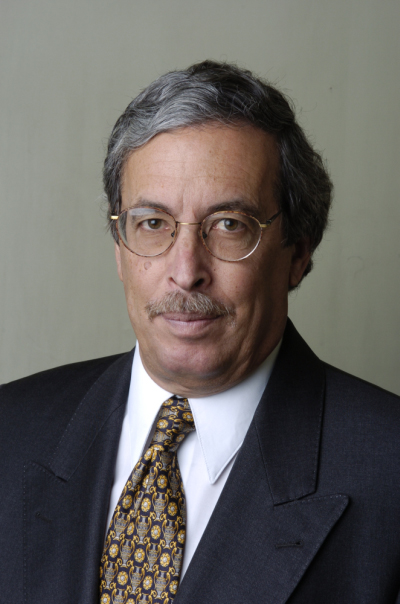US presidential election as theatre
The top ten Republican candidates will take the stage on September 16 for the party’s second televised debate. Daniel Warner takes the occasion to compare the US electoral system with Switzerland’s. One is bad theatre, the other notable for its lack of theatrics.
This week’s stage for the live event carried by CNN will be the Ronald Reagan Presidential Library in Simi Valley, California. It comes a month after the top contenders for the 2016 Republican presidential nomination squared off on Fox News. That debate was eagerly anticipated, especially as to how the billionaire businessman, reality show host and front-runner Donald Trump would perform. Fifteen million people tuned in, which broke records for cable viewership. Soon after the debate, blow-by-blow descriptions appeared in the press, with winners and losers announced. As a perceptive journalist wrote, the US presidential campaign is a “combination of war, sport and entertainment all at once.”
Televised debates have become part of the American political landscape. Since the famous Kennedy-Nixon debates in 1960, the first televised presidential debates in American history, the Republican and Democrat parties have agreed and scheduled debates between their candidates during elections. Debates have also become part of the nomination process to help determine the final candidates of each party. The Republican Party went even further before the first debate, scheduling a shorter debate between the various contenders for the nomination who were not among the top ten in polls.
This October, the seven federal councillors [members of the government] of Switzerland will be chosen. There will be no public debates. While each of the candidates to be councillor will meet with members of the different political parties, none of the meetings will be televised. None of the meetings will be open to the public either. There will be no direct confrontations between the different candidates. There will be no formal debates, no moderators posing questions, no involvement of civil society in the process. The choice of the councillors will be done by the elected members of the Parliament in a secret vote.

The election systems in the United States and Switzerland are radically different. This is not the moment to elaborate on the how the president of the United States is elected. There will be plenty of time for that before November 8, 2016. What can be said now, in September 2015, is that the US presidential electoral process has become theatre. As columnist Frank Bruni wrote in the New York Times of the evening of the first Republican debate and the role of the Fox News moderators: “It was riveting. It was admirable. It compels me to write a cluster of words I never imagined writing: hooray for Fox News.
Did Fox take this combative approach because it was theatrical? Because it promised tension, promoted unease and was a sure route to reddened faces and raised voices? Of course. Nothing scares a network more than the prospect of a political snooze-fest, and candidates left to their own devices are candidates who drone on and on.” This is a New York Times columnist writing about a debate among candidates to be President of the United States praising the network for organizing a “riveting” evening with “tension” “raised voices” and “reddened faces”!
The leading Republican candidate, Donald Trump, has been called “our 21st-century reincarnation of P.T. Barnum.” The comparison with Barnum is noteworthy. Barnum was the 19th century founder of the Barnum & Bailey Circus and an admitted “showman by profession”. Trump is indeed a showman who has captured the attention of disgruntled voters who are tired of the usual political discourse. Trump entertains the voters, much to the dismay of mainstream Republicans and to the astonishment of the pundits.
Politics as theatre; politics as entertainment; politics as circus. There is no question that performance has become more and more important on what is now the political stage, especially in the United States. Those B-grade actors, Ronald Reagan and Arnold Schwarzenegger, after all, became President and Governor of California. There is probably no room left for university professors/presidents like Woodrow Wilson or intellectuals like Adlai Stevenson.
It may sound churlish to compare the Swiss electoral system with that of the United States. The Sister Republics are no longer equal in size, nor do the presidents have comparable powers. Nevertheless, although the Swiss system does not have direct voting for its federal councillors – I am well aware that a so-called electoral college chooses the president of the United States – there is something reassuring that the election of the seven executives is not based on entertainment, performance or theatre.
I accept that sports have moved to big business and entertainment. Roger Federer is more than just a tennis player. But to judge politicians by their performance value and entertainment skills misses the entire point of what politics is all about. The business of governing is serious business, and comparisons with sports and theatre are like comparing apples and oranges. Although the October election in Switzerland may be criticized for its lack of transparency, the American process is not only too transparent, it is embarrassing. And bad theatre.
The views expressed in this article are solely those of the author, and do not necessarily reflect the views of swissinfo.ch.
Opinion series
swissinfo.ch publishes op-ed articles by contributors writing on a wide range of topics – Swiss issues or those that impact Switzerland. The selection of articles presents a diversity of opinions designed to enrich the debate on the issues discussed.

In compliance with the JTI standards
More: SWI swissinfo.ch certified by the Journalism Trust Initiative









You can find an overview of ongoing debates with our journalists here . Please join us!
If you want to start a conversation about a topic raised in this article or want to report factual errors, email us at english@swissinfo.ch.